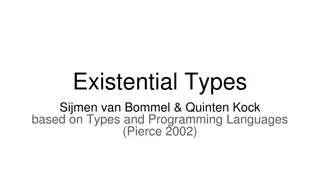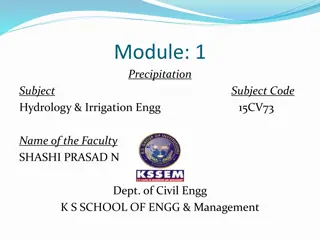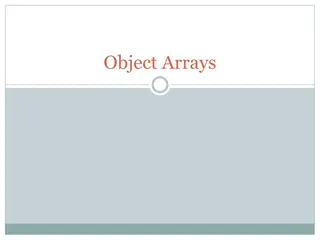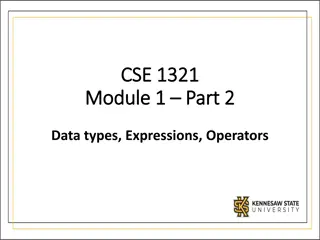
Types of Research Methods and Applications in Various Fields
Explore different types of research methods including descriptive, analytical, applied, and fundamental approaches. Learn about the significance of objective research, application modes, and the distinction between qualitative and quantitative research. Discover how research is conducted and its impact on various aspects of society.
Uploaded on | 1 Views
Download Presentation

Please find below an Image/Link to download the presentation.
The content on the website is provided AS IS for your information and personal use only. It may not be sold, licensed, or shared on other websites without obtaining consent from the author. If you encounter any issues during the download, it is possible that the publisher has removed the file from their server.
You are allowed to download the files provided on this website for personal or commercial use, subject to the condition that they are used lawfully. All files are the property of their respective owners.
The content on the website is provided AS IS for your information and personal use only. It may not be sold, licensed, or shared on other websites without obtaining consent from the author.
E N D
Presentation Transcript
TYPES OF RESEARCH Dinesh Ganotra
Types of Research Applicatio n Mode Developing an instrument or a technique Example: Finding best way of measuring people s attitude. Objective Mode To Describe a situation Example : Living conditions of a community Enquiry Mode Finding the reason for what you might have found in the objective mode Example: How does technology create employment/unemployment.
Application mode Pure Applied Developing a new instrument or technique Collection of information about various aspects of a situation so that it may be used in other ways
Objective Research Descriptive Correlationa l Exploratory
Descriptive Research The researcher do not have any control over any variables. He can only observe and report what has happened or what is happening.
Enquiry Mode Structured Approach Everything that forms a research process objective, design , sample , and the questions that you plan to ask is predetermined. Unstructured Approach It allows flexibility in all these aspects
Examples of Objective Research Attitude of nurses towards death and dying Problems faced by new immigrants Relationship between stressful living and incidence and heart attacks Impact of technology on employment Why does stressful living results in heat attacks Why do some people migrate to another country while others do not?
Descriptive vs. Analytical Applied vs. Fundamental Qualitative vs. Quantitative Conceptual vs. Empirical Descriptive: Researcher has no control over the variables, he can only report what has happened or what is happening Frequency of shopping, uses survey methods Analytical: no survey, analyse facts/information already available Applied: Finding solutions for an immediate problem the society is facing Fundamental: Generalization for formulation of a theory Conceptual: deals with abstract idea Empirical : Relies on experience or observation alone.
Applied Fundamental Expand knowledge of processes of business and management Results in universal principles relating to the process and its relationship to outcomes Findings of significance and value to society in general Improve understanding of particular business or management problem Results in solution to problem New knowledge limited to problem Findings of practical relevance and value to manager(s) in organization(s) Purpose Undertaken by people based in universities Choice of topic and objectives determined by the researcher Flexible time scales Undertaken by people based in a variety of settings including organizations and universities Objectives negotiated with originator Tight time scales Context
Considerations in selecting a research problem Interest Magnitude Level of expertise Relevance Availability of data Ethical issues
Significance Provides basis for nearly all government policies Solves operational and planning problems of business and industry A formal training which helps one to understand the new developments in ones field
Why is productivity in Japan so much higher than in India? Ambiguities?
Ambiguities Which productivity? What industry? What period of time?
Narrow down the question What factors were responsible or for the higher labour productivity of Japan s manufacturing industries during the decade 1971 to 1980 relative to India s manufacturing industries?
Subjects Topics Animal rights If zoos are cruel rather than educational If testing medical procedures/drugs on animals should be increased or decreased Education If K 12 school should be year-round If advanced placement high school classes should be eliminated English If English should be India s official language If bilingual education is valid Gambling If casino gambling should be made illegal in the India Whether compulsive gambling is a disease, not a moral weakness Health Whether the government should increase funding for rare, so-called orphan diseases If hepatitis testing should be mandated for all healthcare workers Voting If the Electoral College should be abolished If voting should be mandatory






















